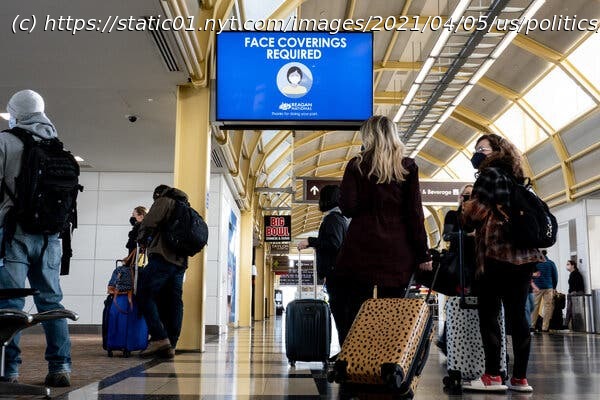Businesses and universities want fast, easy ways to see if students and customers are vaccinated, but conservative politicians have turned “vaccine passports” into a cultural flash point.
Cathay Pacific airlines, convinced that digital proof of coronavirus vaccination will bring about the return of safe international travel, asked its pilots and crew to try out a new mobile app that showed their vaccination status on a recent flight from Hong Kong to Los Angeles. New York has rolled out “Excelsior Pass,” billed by the state as “a free, fast and secure way to present digital proof of Covid-19 vaccination” in case reopening sports and entertainment venues require proof of attendees’ status. And Walmart, the nation’s largest private employer, is offering electronic verification apps to patients vaccinated in its stores so they “can easily access their vaccine status as needed,” the company says. Around the country, businesses, schools and politicians are considering “vaccine passports” — digital proof of vaccination against the coronavirus — as a path to reviving the economy and getting Americans back to work and play. Businesses especially fear that too many customers will stay away unless they can be assured that the other patrons have been inoculated. But the idea is raising charged legal and ethical questions: Can businesses require employees or customers to provide proof — digital or otherwise — that they have been vaccinated when the coronavirus vaccine is ostensibly voluntary? Can schools require that students prove they have been injected with what is still officially an experimental prophylaxis the same way they require long-approved vaccines for measles and polio? And finally, can governments mandate vaccinations — or stand in the way of businesses or educational institutions that demand proof? Legal experts say the answer to all of these questions is generally yes, though in a society so divided, politicians are already girding for a fight. Government entities like school boards and the Army can require vaccinations for entry, service and travel — practices that flow from a 1905 Supreme Court ruling that said states could require residents to be vaccinated against smallpox or pay a fine. “A community has the right to protect itself against an epidemic of disease which threatens the safety of its members,” Justice John Marshal Harlan wrote in Jacobson v. Massachusetts, the 1905 case. Private companies, moreover, are free to refuse to employ or do business with whomever they want, subject to only a few exceptions, ones that do not include vaccination status. And states can probably override that freedom by enacting a law barring discrimination based on vaccination status. But as the nation struggles to emerge from the worst public health crisis in a century, the arrival of digital vaccine verification apps — a modern version of the World Health Organization’s “yellow card” that provides international proof of yellow fever vaccination — has generated intense debate over whether proof of vaccination can be required at all. On Tuesday, Gov. Greg Abbott of Texas became the latest Republican governor to issue an executive order barring state agencies and private entities receiving funds from the state from requiring proof of vaccination. The World Health Organization, citing equity concerns, also said on Tuesday that it currently did not support mandatory proof of vaccination for international travel. Others are moving forward. Universities like Rutgers, Brown and Cornell have already said they will require proof of vaccination for students this fall. The Miami Heat this week became the first team in the N.
Home
United States
USA — Science Likely Legal, ‘Vaccine Passports’ Emerge as the Next Coronavirus Divide






